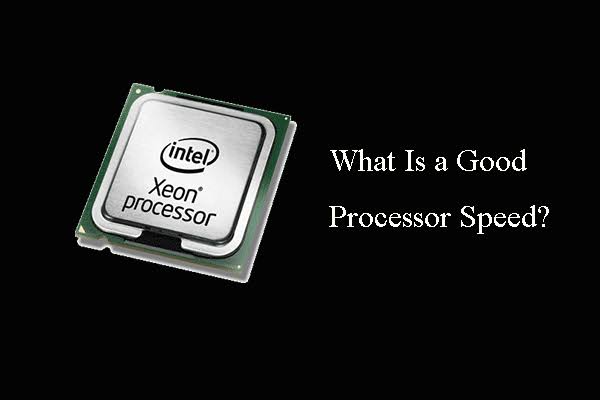The role of processor speed and performance is critical in laptops. We live in a digital era where countless devices rely on CPU power to get things done; everything from productivity workflows to gaming fun hangs in the balance.
The processor, often called the CPU (central processing unit), acts as the brains of a laptop. It is responsible for processing calculations and managing tasks or processing jobs running on different software applications like web browsers and complex software.
How Processor Speed and Performance Work
The speed of a processor, which is usually indicated by gigahertz (GHz), is how quickly it can execute instructions. Laptops with higher clock speeds offer more substantial performance for better multitasking, making them ideal for people who run many programs on their laptop at once.
In contrast, clock speed is not the only determinant of processing power; architecture, core count, cache size, and efficiency are also crucial factors.
Multitasking and Performance
Another way a faster processor will benefit you is by ensuring that your system performs smoothly without any lag or delay due to the multitasking environment you deal with on a daily basis, especially when you have several applications open simultaneously. Professionals handling tasks such as video editing, 3D modeling, and data analysis with specific computational needs rely on superior processors to enable quick, efficient problem-solving. These high-performance processors aim to deliver substantial cost-performance.
Faster Processor, Better Gaming
The gaming industry thrives off of laptops with high-performance processors accompanying dedicated graphics cards. It’s important to remember that while GPUs drive most of the graphical work, your CPU contributes to game responsiveness in general, as well as physics calculations and AI tasks.
With current advancements in gaming, powerful processors are in-demand to praise high frame rates. They allow us the experience of total immersion in our game making all of our senses even more alive during the process.
Productivity and Efficiency
For business professionals and students, processor speed contributes significantly to productivity. Faster CPUs enable quick loading times for applications, smooth multitasking between documents and spreadsheets, and rapid data processing. Tasks such as compiling code, rendering presentations, and running simulations benefit from enhanced processor performance, saving valuable time and improving workflow efficiency.
Battery Life and Efficiency
Processor efficiency is crucial for optimizing laptop battery life. Modern processors, designed with energy-efficient architectures and manufacturing processes (like Intel's 10nm or AMD's 7nm), strike a balance between performance and power consumption. Lower power consumption extends battery life, enabling longer usage periods on a single charge, which is essential for mobile professionals and travelers.
Factors Affecting Processor Performance
Several key factors influence processor performance beyond clock speed:
Architecture
Modern CPU architectures (like Intel's Core series or AMD's Ryzen series) incorporate advanced technologies such as hyper-threading, turbo boost, and integrated graphics to enhance performance and efficiency.
Core Count
Multi-core processors, ranging from dual-core to octa-core configurations, divide tasks among multiple cores, improving multitasking capabilities and overall system responsiveness.
Cache Size
CPU cache (L1, L2, and L3) stores frequently accessed data and instructions, reducing memory latency and enhancing performance for repetitive tasks.
Thermal Management
Efficient cooling solutions (heat sinks, fans, thermal paste) prevent overheating and thermal throttling, ensuring consistent performance under heavy workloads.
Technological Advancements and Future Trends
The evolution of processor technology continues to drive innovation and performance gains in laptops:
AI Integration
AI-powered processors, like Intel's AI-enhanced CPUs or AMD's accelerated processing units (APUs), leverage machine learning algorithms for faster data processing, predictive analytics, and enhanced user experiences.
Quantum Computing
Experimental quantum processors promise revolutionary advancements in computing power, potentially solving complex problems beyond the capabilities of classical processors.
Customization and Modularity
Emerging trends in modular laptop designs allow users to upgrade processors and other components easily, extending the lifespan and performance capabilities of their devices.
Challenges and Considerations
While processor speed and performance are critical, several challenges and considerations impact their effective utilization:
Heat Dissipation
Higher clock speeds and core counts generate more heat, necessitating efficient cooling solutions to maintain optimal performance and prevent thermal throttling.
Software Optimization
Application developers must optimize software to leverage multi-core processing and take advantage of advanced CPU features for enhanced performance.
Cost and Affordability
High-performance processors often come at a premium cost, influencing laptop pricing and affordability for budget-conscious consumers.
